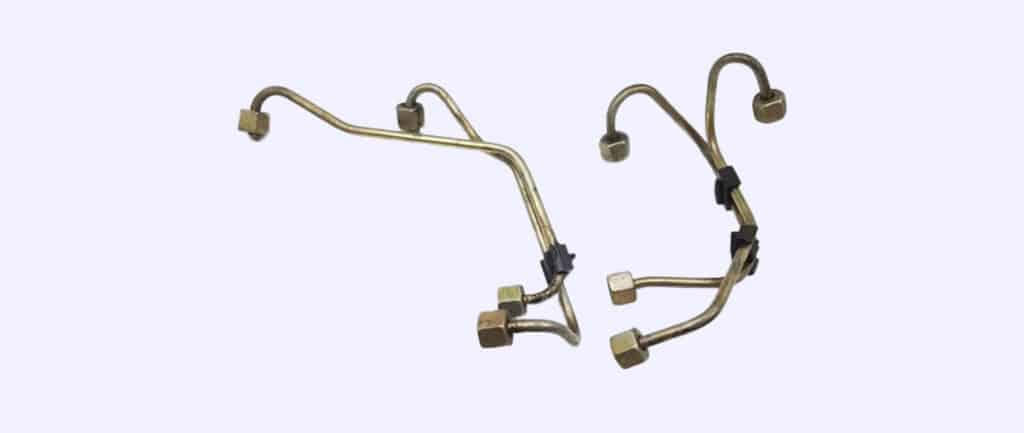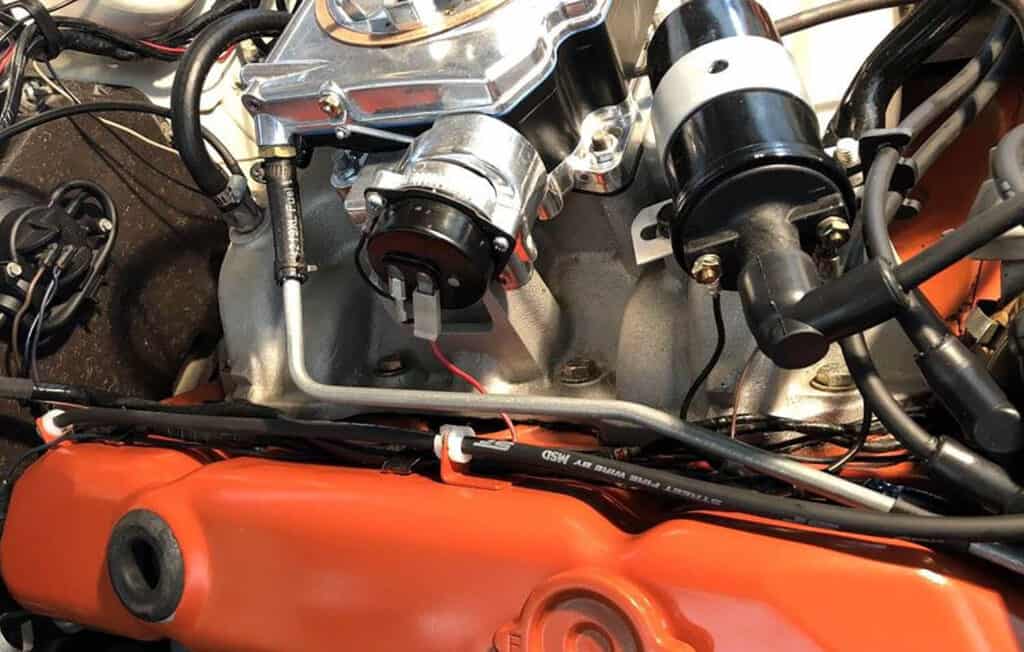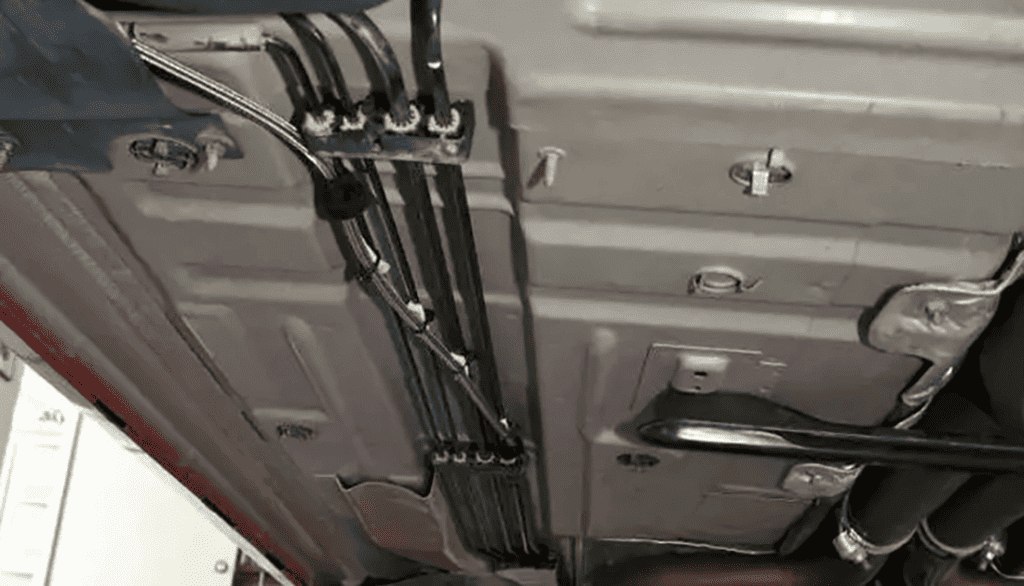One of the primary components that keep your car running is the fuel line – a crucial link in the chain of functions that deliver fuel from your tank to your engine. This guide explores everything you need to know about replacing fuel lines, including the associated costs and signs of faulty or damaged lines.
What are Fuel Lines and Their Importance?
Fuel lines are the conduits responsible for transporting fuel from your car’s gas tank to the engine. Made of either steel, aluminum, or reinforced rubber, these lines are essential for your vehicle’s functionality and safety. Without a properly working fuel line, your vehicle can experience various problems, and there is a risk of fuel leaks, which can lead to dangerous situations.
How Much Will it Cost to Replace Fuel Lines in Canada?
The cost of replacing fuel lines in Canada depends on the vehicle model and labor rates. On average, you can expect to pay between $300 and $500. This cost includes parts, usually priced between $50 and $150, and labor, which can range from $250 to $350 depending on the complexity of the job and the mechanic’s hourly rate. Remember, these prices are estimates and can vary.

What are the Symptoms of a Faulty or Damaged Fuel Line?
• Fuel Leaks: One of the most common symptoms of a faulty or damaged fuel line is a noticeable fuel leak. This could be under the car or near the engine compartment.
• Fuel Smell: A strong smell of fuel in the vehicle cabin or near the engine is often a sign of a leaking fuel line.
• Decreased Fuel Efficiency: If your vehicle is not achieving the fuel efficiency it once did, it might be due to a leaking fuel line.
• Engine Performance Issues: Faulty fuel lines can cause the engine to misfire, hesitation during acceleration, or stall. This is because the correct amount of fuel isn’t reaching the engine.
• Check Engine Light: Modern vehicles have sensors that can detect changes in fuel pressure. If a leak or blockage affects fuel pressure, it might trigger the check engine light.
• Hard Starting or Failure to Start: If a fuel line is seriously damaged or leaking, it can prevent the engine from receiving the fuel it needs to start.
• Visible Damage to the Fuel Lines: During regular maintenance or inspection, visible signs of wear or damage to the fuel lines may be noticeable, such as rust, corrosion, or physical damage.
How Long Do Fuel Lines Last?
Fuel lines can last up to 10 years or more if properly maintained and depending on the materials they’re made from. However, several factors like corrosion, extreme temperatures, and wear and tear can shorten their lifespan.
How Do Fuel Lines Become Defective or Damaged?
• Age and Wear: Over time, the fuel lines can deteriorate due to the constant flow of fuel, fluctuating temperatures, and vibrations from the engine. This wear and tear can cause the lines to crack, corrode, or leak.
• Poor Installation: If the fuel lines are not properly installed, they can rub against other components under the hood, leading to premature wear and damage.
• Contaminated Fuel: Debris or other contaminants in the fuel can cause blockages or damage the lines.
• Accidents or Collisions: Physical impact from a collision or from road debris can cause punctures or other damage to the fuel lines.
• Aggressive Chemicals: Exposure to harsh chemicals or improper use of cleaning agents can cause corrosion and damage to the fuel lines.
• Extreme Weather Conditions: Extreme cold can make fuel lines brittle and more prone to cracking, while extreme heat can cause them to expand and rupture.

How Can Faulty or Damaged Fuel Lines Affect the Vehicle?
• Engine Performance Issues: Faulty or damaged fuel lines can lead to poor fuel pressure, causing the engine to run lean (too much air and not enough fuel), leading to rough idling, stalling, and a decrease in power and acceleration.
• Increased Fuel Consumption: Since the fuel system’s pressure is compromised, the engine might consume more fuel than necessary, leading to decreased fuel efficiency.
• Risk of Fire: Leaking fuel lines can pose a significant fire risk. A fuel leak can ignite under the right conditions, potentially leading to a vehicle fire.
• Environmental Damage: Leaking fuel can cause environmental damage, as the gasoline or diesel can contaminate the soil and groundwater.
• Vehicle Stalling: If the fuel lines are severely damaged and the fuel supply to the engine is interrupted, it could cause the vehicle to stall unexpectedly, which could be dangerous in certain driving conditions.
Is it Safe to Drive with Faulty or Damaged Fuel Lines?
Driving with faulty or damaged fuel lines is a serious safety hazard and is strongly discouraged. When your fuel lines are compromised, there’s a risk of fuel leaks. These leaks can not only cause performance issues with your vehicle but also pose a significant fire risk. Even a small spark, such as from a static electricity discharge, can ignite the fuel vapors and cause a fire. In addition, a leak could lead to fuel spillage that, in a worst-case scenario, could contaminate the environment.
Moreover, should a fuel line break completely while you’re driving, it could lead to a sudden loss of engine power as the fuel supply is interrupted. This could happen at high speed on a freeway, or in heavy traffic, both of which can be incredibly dangerous situations. It can also result in a significant amount of wasted fuel, leading to frequent fill-ups and poor fuel economy. Therefore, if you notice any symptoms of faulty or damaged fuel lines, it’s crucial to have your vehicle inspected and repaired immediately for your safety and that of others on the road.
How Can I Make My Fuel Lines Last Longer?
• Regular Inspections: Regularly inspect your fuel lines for signs of wear and tear or damage. This can help you catch any potential issues before they become serious problems.
• Use High-Quality Fuel: Using high-quality fuel can reduce the amount of sediment and deposits in your fuel lines, helping to extend their lifespan.
• Install a Fuel Filter: If your vehicle doesn’t already have one, consider installing a fuel filter. This can help to catch any debris before it enters your fuel lines.
• Regular Servicing: Regularly servicing your vehicle can help to keep your fuel lines in good condition. This includes having your fuel lines cleaned and flushed as needed.
• Avoid Running on Empty: Try not to let your vehicle’s fuel level get too low. This can cause sediment that settles at the bottom of your fuel tank to be sucked into your fuel lines.
• Protect Your Vehicle from Extreme Temperatures: Extreme hot or cold temperatures can cause your fuel lines to expand or contract, which can lead to damage over time. Try to keep your vehicle in a garage or another sheltered location whenever possible.
• Replace Aged Lines: Even with good maintenance, fuel lines will age and degrade over time. If your vehicle’s fuel lines are old and beginning to show signs of wear, consider replacing them to prevent a breakdown or potential safety issue.

Can a Mobile Mechanic Replace Fuel Lines?
Yes, a mobile mechanic is well equipped to replace fuel lines. They can provide the service at your location, saving you the trouble of taking your car to a repair shop.
Conclusion: Importance of Proper Fuel Line Maintenance and Replacement
In conclusion, proper maintenance and timely replacement of fuel lines are vital for your car’s performance and safety. Regular inspections and preventive measures can extend their life, ensuring a smooth, trouble-free driving experience. If you suspect any issues with your fuel lines, seek professional help immediately. It’s always better to be safe than sorry when it comes to maintaining your vehicle.
Next Steps
Book Your Fuel Line Replacement Service
The service most frequently booked by those who read this article is Fuel Line Replacement. Uchanics’ expert technicians make the process even more convenient by bringing the service right to your doorstep. We perform this job at your home or office, covering over 40 cities in Ontario, including Oshawa, Ajax, Toronto, Scarborough, Mississauga, Brampton, and more. Our commitment to excellence has earned us more than 700 glowing 5-star reviews. Choose Uchanics for your Fuel Line Replacement and experience unparalleled convenience and top-quality service.
